Introduction
Diwali is the Festival of Lights-joy, tradition, and spiritual meaning interwoven into one radiant tapestry. This is a vibrant festival with deep roots in Hinduism; thus, homes and hearts light up everywhere in the world. Behind the dazzling display of lights and fireworks, Diwali signifies the victory of good over evil, knowledge over ignorance, and hope over despair.
The mythology, multifaceted and lending fire to its celebration; the intricate rituals adorning its festivities; profound spiritual meaning that it carries-all these we shall delve into as we embark on this journey to explore the depth of Diwali. Take a captivating journey with us into the depth of Diwali, the Festival of Lights that inspires and enchants millions of people.
Diwali: The Festival of Lights
Deepavali, popularly known as Diwali, is celebrated with a lot of enthusiasm in India and by its Hindus all over the world. It is called “Diwali” because the term is derived from the Sanskrit word “dipavali,” which means “row of lights.”
Importance
Victory of Good Over Evil: Diwali is a celebration of the victory of Lord Rama over the demon king Ravana.
Goddess Lakshmi: Lakshmi, the goddess of wealth and prosperity, is also associated with it.
Symbol of Light: The festival symbolizes the victory of light over darkness, knowledge over ignorance, and good over evil.
Celebrations
Lighting of Diyas: Homes and streets are adorned with an enormous number of diyas, which is a sign to show the victory of light over darkness.
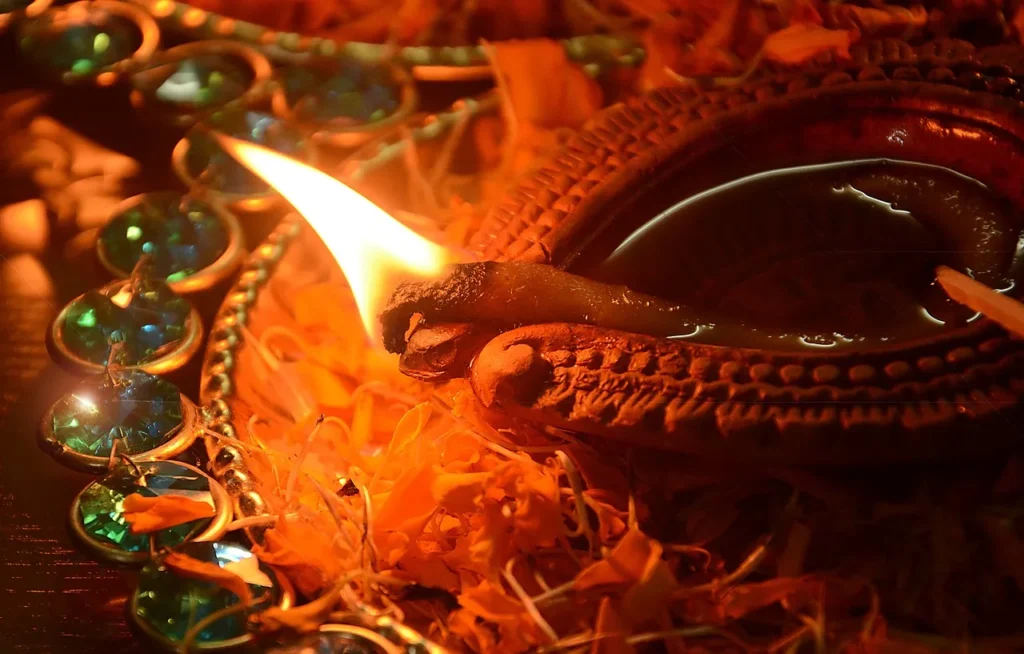
Rangoli: Made with powders, sand, or rice, colorful and intricate designs on the floor.
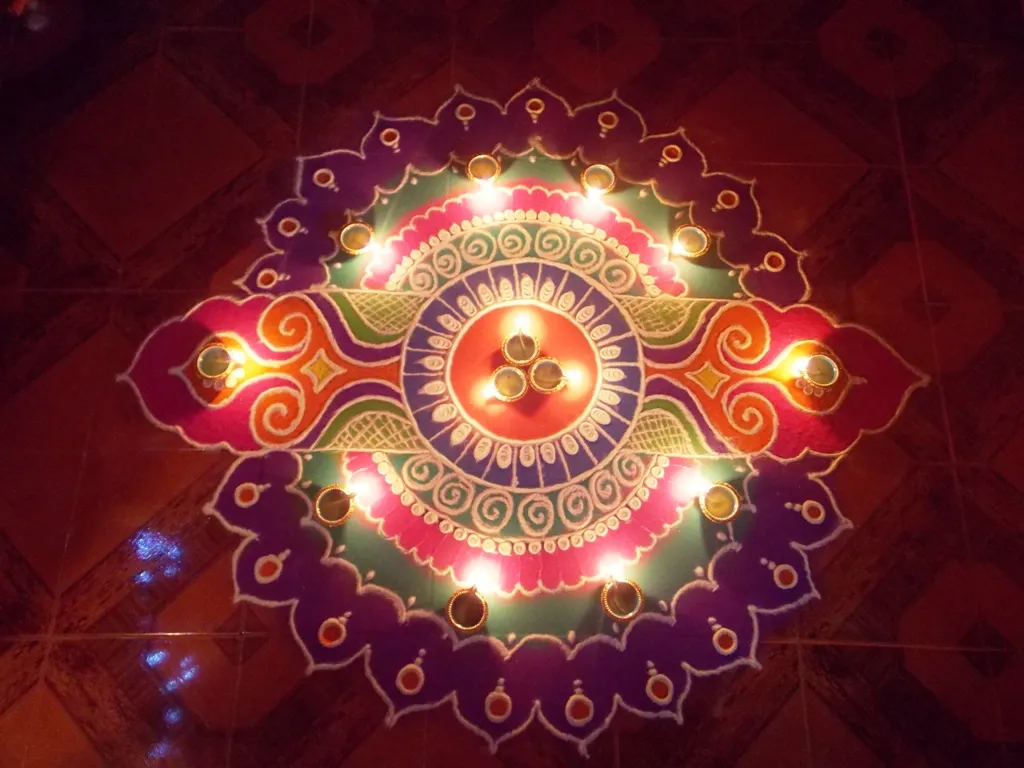
Fireworks: Variety of fireworks light into the night.
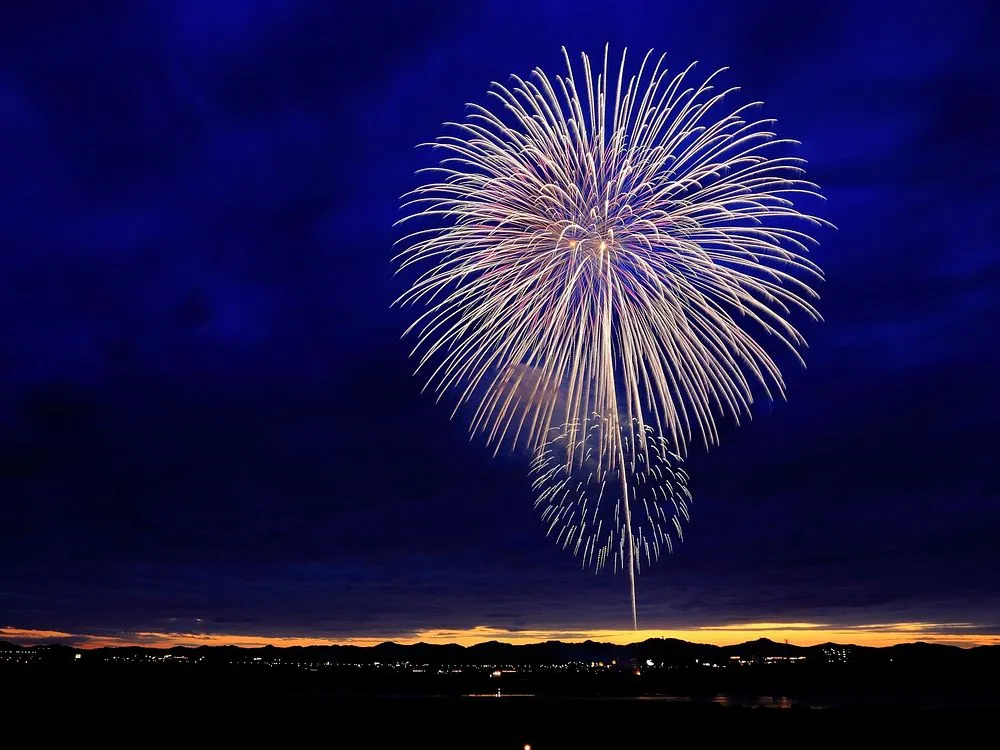
Prayers and Offerings: Devotees pray to Lakshmi and other gods for blessings of prosperity and wealth and ultimately for happiness.
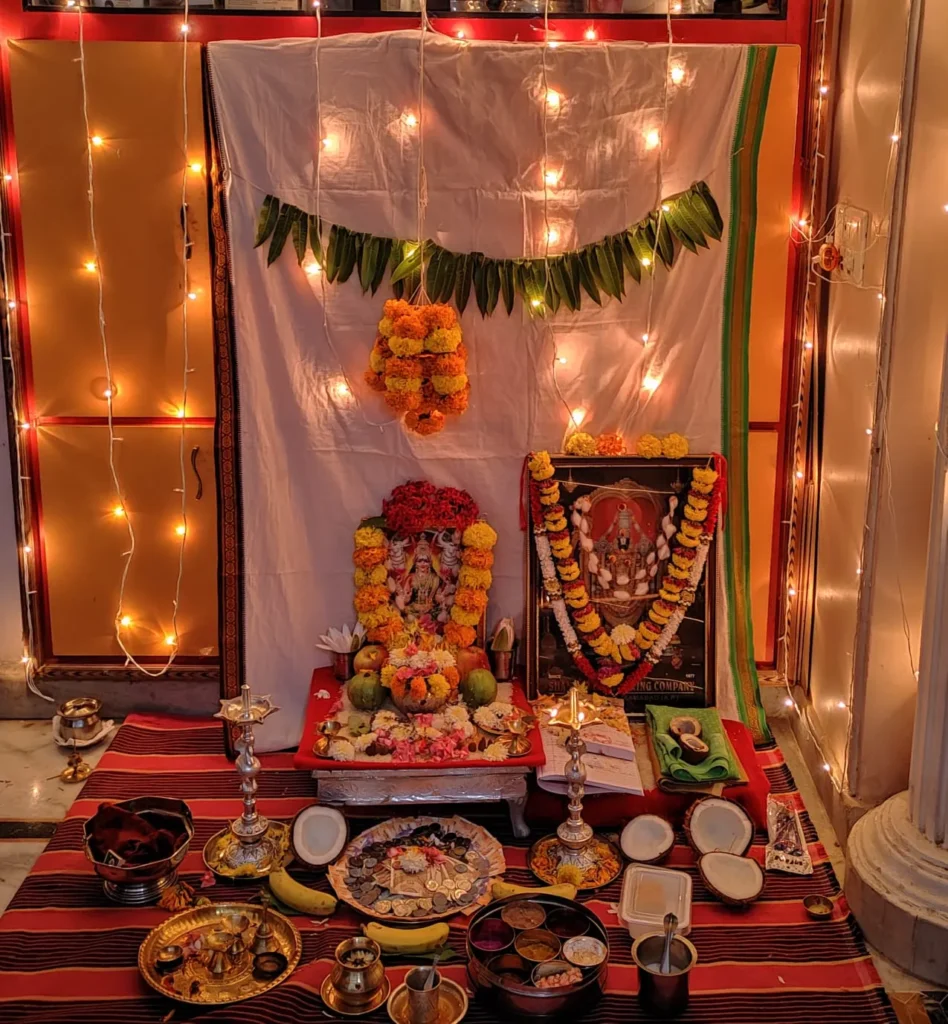
Family Get-together: They share meals and various gifts and celebrate together.
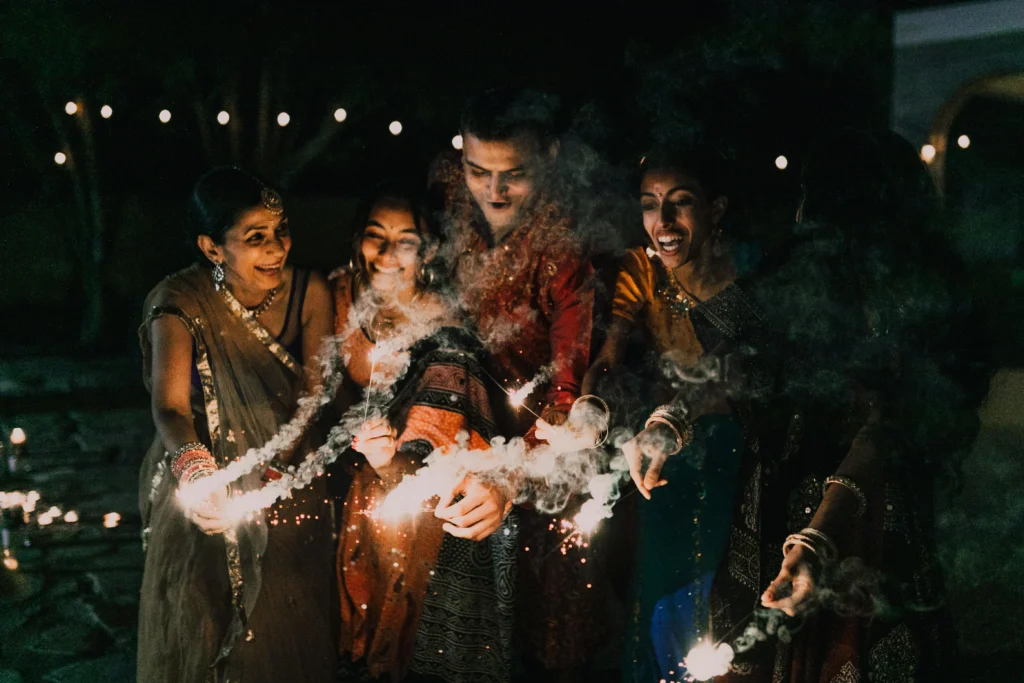
Dates: The exact dates of Diwali vary every year according to the Hindu lunar calendar. Normally, it falls in late October or early November.
The Story of Diwali: The Timeless Tale of Good vs Evil
The roots of Diwali are buried under various engaging legends, each pointing out the significance of the festival viewed from a different perspective. Arguably the most popular is the Epic Ramayana, which some others believe to be one of the cornerstones of Hindu mythology.
The Epic Ramayana – The Ramayana speaks of the valiant journey of Lord Rama, an avatar of Vishnu, as he fought the demon king Ravana in order to rescue his wife, Sita. Having battled with all his might, Rama emerged victorious, whereupon he overcame Ravana and recaptured Sita. When he returned triumphant to Ayodhya, his kingdom, the people of Ayodhya lit up their homes with lights to celebrate his homecoming. This is said to be the origin of Diwali.
The Story of King Bali and Vamana
Another famous Diwali mythology is the story that signifies the fight between a very powerful demon-king, King Bali, and the dwarf avatar of Lord Vishnu, Vamana. Even though he was a dwarf, Vamana asks to wrestle with King Bali. Using some gimmick, he measures the entire Earth in three strides and pushes King Bali into the nether world to rule it. And the good-over-bad victory is also celebrated on Diwali.
Regional Legends
Apart from these broad myths, several local legends also are associated with Diwali. For instance, in southern India, Diwali is held in honor of the defeat of Narakasura, a demon king.
Light and Dark: The Inner Significance
In these legends, the eternal fight between light and darkness symbolically represents good and evil forces, which have always cropped up in endless battle. The victory of Lord Rama and Vamana over their respective adversaries is yet another representation of the victory of light over darkness. Diwali, with its dazzling display of lights, depicts the triumph of good and the dissipation of evil forces. Lamps and fireworks that adorn the festival symbolize the light of knowledge and eradication of ignorance.
Lighting Up Traditions: How Diwali is Celebrated
Preparations
The preparation for Diwali begins months in advance, and the fervor of preparations is undertaken with great care by families all over the country. Houses are deeply cleaned and decked up with festive touch-ups. Rangoli, intricate designs drawn with colored powders or flowers, are made at the entrance of homes to invite good fortune and deter evil.
Diyas and Illuminations
Probably the most iconic symbol of Diwali, the diya consists of little earthen lamps filled right up with oil and a cotton wick. Houses light thousands of these, providing a warm, inviting light. Lighting diyas signifies the removal of darkness and the victory of light over evil. Even the streets and public places are all lit up with bright colorful lights and lanterns, making everything really festive-looking.
Diwali Day-by-Day Celebrations
Diwali is a five-day extravaganza, with each day filled with its own sense of importance.
Dhanteras: This day relates to wealth and prosperity. New things are bought on this day, particularly made up of gold or silver, as it is considered very auspicious.
Chhoti Diwali: Also referred to as Naraka Chaturdashi, this is the day when rituals to ward off evil spirits are performed. Some people believe that it is the day Lord Krishna defeated Narakasura.
Diwali Night: This is the primary day for Diwali celebrations. The night is fully packed with festivities such as puja, lighting of diyas, and bursting of fireworks. People come together, share meals, and exchange gifts in celebration.
Govardhan Puja (optional): A day after Diwali, some regions also celebrate Govardhan Puja. It is a festival to please Lord Krishna, who saved people of Vrindavan from the anger of Indra.
Diwali Padwa: This day is celebrated in some parts of India. It is believed to mark the beginning of the Hindu New Year. The day is meant for family gatherings and festivals.
Bhai Dooj: This is considered the most pious festival celebrated on the fifth day of Diwali. It celebrates the bond between siblings. Sisters put tilak on their brothers’ foreheads and pray for them.
Variations across regions
Although the basic customs of Diwali remain the same throughout India, the way of celebration and the deities worshiped vary in different parts of the country. There are certain customs and rituals peculiar to each region, which depict the varied cultural background of India.
Diwali Celebrations Outside India
Diwali is not confined to India alone. The festival is celebrated by Hindu communities in various countries such as Nepal, Mauritius, Singapore, and the United States. While the scale and celebrations may vary, the underlying spirit of Diwali is just the same, standing for good over evil and ignorance giving way to enlightened knowledge.
Significance of Diwali: Beyond Lights
Spiritual Significance
But beyond the festivals and celebrations, Diwali holds a deeper spiritual significance. This is a time for introspection and spiritual rejuvenation. The victory of Lord Rama over Ravana signifies the victory of righteousness over evil, reminding us to uphold the lofty values of truthfulness.
Besides, Diwali draws on the importance of inner light. Diyas lit in every home remind us of that inner light within us. It inspires us to gain knowledge by removing our ignorance and developing wisdom. It tells us to look inside and reflect upon what we are thinking, doing and believing.
Social Significance
Diwali also plays an important role in strengthening the social bond. It is the time for families and friends to reunite together, celebrate, and reassure their relationships. The festival fills one with a sense of community and shares the joy and blessings of life with others.
Also, Diwali is a new beginning. It is a time when one has to think of the present and forget about the past, think of a brighter future. The festival of light reflects hope-a new beginning and the promise of new beginnings. By removing the darkness that was in one’s life, it can be said that Diwali opens up an opportunity for new journeys and dreams to seek their fulfillment.
Celebrating Diwali Responsibly
While Diwali is full of joy and festivity, it is essential to celebrate the occasion with responsibility and to reduce the environmental impact of this festival as much as possible.
Eco-Friendly Practices
Alternatives to Traditional Firecrackers: The bursting of firecrackers has come under scrutiny for air pollution, noise pollution, and the impact they have on animals. Switching over to some eco-friendly alternatives, such as noise-free crackers or LED lights, will go a long way in reducing the environmental impact of Diwali celebrations.
Use Clay Diyas and Eco-Friendly Lighting: Traditional clay diyas made up of natural products are at variance with electric lights. Along with this, the use of LED lights reduces the consumption of electricity, making the celebration greener.
Safety Precautions
Carefulness in Handling Fireworks: Firecrackers can be dangerous if they are mishandled. Precautions should be followed, such as lighting firecrackers in an open space where there is little chance of catching a flame and keeping children off the streets from fireworks.
Noise Pollution Control: Heavy noise pollution is injurious to both humans and animals. It is good to use only noiseless crackers or to limit loud firework crackers so that excess noise pollution can be prevented and a peaceful festival can be enjoyed.
Eco-friendly behavior and safety concerns will make Diwali celebrations enjoyable with least negative impact on the environment and a joyful, safe celebration for all.
Conclusion: Embracing the Light of Diwali
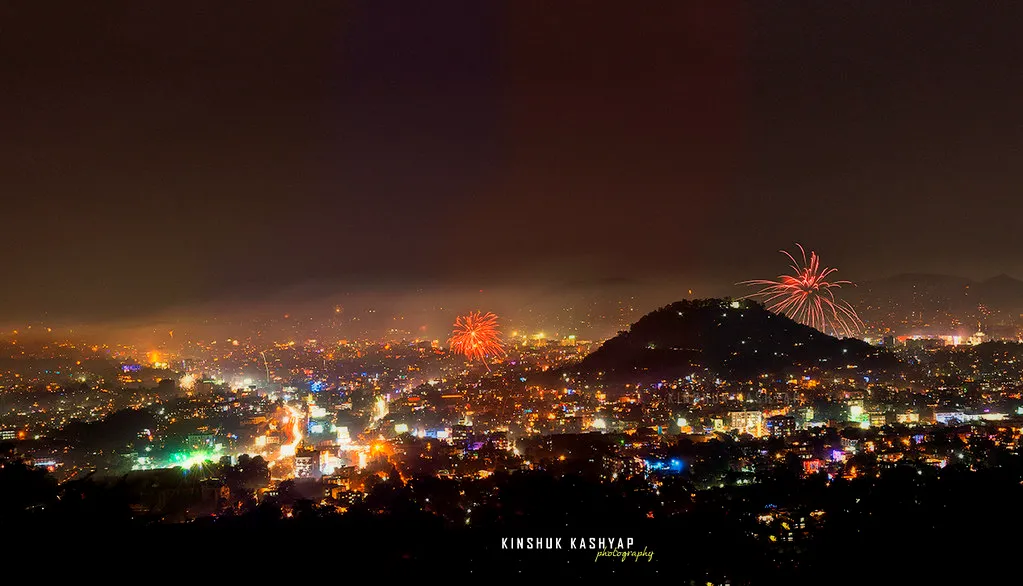
The Essence of Diwali
Diwali, or the Festival of Lights, symbolizes hope, rejoicing, and the victory of virtue over malice. It is a period of introspection, family reunions, and enlightenment of the spirit. The timeless mythologies, the vivid traditions, and the rich spiritual meaning of this festival have continued to inspire and enthral millions around the world.
A Heartfelt Message
As we conclude the exploration of Diwali, let the light that spreads in our lives be embraced. Let us also be inspired by the spirit of Diwali to take along with us the joys, kindness, and compassion among us. Illuminating our hearts with the light of love, knowledge, and understanding, let the essence of Diwali guide us in making this world full of light, joy, and togetherness.


